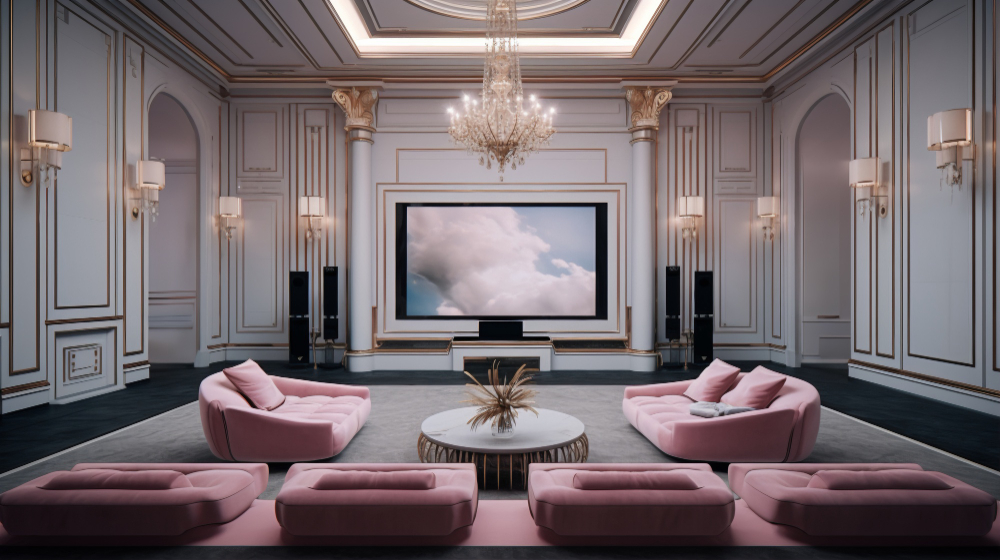The dystopian film Uglies has been creating ripples among fans of thought-provoking cinema, and it’s no wonder why. Based on Scott Westerfeld’s best-selling novel, “Uglies” plunges viewers into a world where beauty standards aren’t just social—they’re systemic and mandatory. If you’re looking to explore a movie with biting social commentary, captivating visuals, and thought-provoking themes, “Uglies” deserves a spot on your watchlist.
But what makes Uglies so exciting? Let’s take a deep dive into the film’s premise, production insights, and what audiences can expect from this highly anticipated adaptation.
The World of Uglies
“Uglies” is set in a dystopian future where society is divided into two groups—”Uglies” and “Pretties.” At 16, every individual is mandated by law to undergo a drastic cosmetic surgery that transforms them from an “Ugly” to a “Pretty.” The surgery isn’t just about enhancing beauty; it’s about conformity and societal control.
The film follows the story of Tally Youngblood, a teen on the brink of her 16th birthday, who initially can’t wait to undergo the surgery and join the glittering, glamorous world of the “Pretties.” But her perspective shifts when she meets Shay, a rebellious girl who questions the societal norms surrounding the surgery and introduces Tally to a hidden community of individuals who’ve rejected the procedure. What unfolds is a gripping tale of rebellion, self-discovery, and the challenging of long-held systems of oppression.
Exploring the Themes in “Uglies”
“Uglies” resonates with viewers by tackling significant themes that are both relatable and timely. Here’s a closer look at the key issues the film brings to light:
1. The Pressure to Conform
At its core, “Uglies” is a commentary on societal beauty standards and the pressure to conform to a single mold. By putting beauty on a pedestal, the film critiques our world’s obsession with physical appearances and the lengths we go to fit in.
The dystopian setting shows how these pressures play out to extremes, asking viewers to think about how much of ourselves we’re willing to sacrifice to meet societal expectations.
2. Rebellion and Identity
Tally’s transformation from a rule-abiding teenager to someone questioning the very foundation of her society highlights the universal struggle of self-discovery and rebellion. The movie encourages viewers to reflect on their individuality and whether they’re living authentically or merely adhering to societal norms.
3. Technology and Ethics
The advanced cosmetic procedures in “Uglies” raise moral questions about the role of technology in altering human bodies. Is it ethical to enforce conformity in the name of “progress”? This theme aligns with ongoing debates about cosmetic surgery, genetic engineering, and artificial intelligence in today’s society.
4. Power and Control
The movie also shines a light on how those in power can manipulate societal norms, like beauty standards, as a means of control. “Uglies” brilliantly demonstrates how such systems aren’t about the individuals but sustaining the hierarchy in a dystopian regime.
Bringing “Uglies” to Life
Filmmaking is no easy feat, but bringing a beloved book like “Uglies” to the big screen requires both creativity and reverence for the source material. Directed by McG, known for his successful blend of visual energy and storytelling, the movie is shaping up to be a visual spectacle brimming with hard-hitting moments.
The casting decisions have also piqued the interest of fans. Joey King stars as Tally Youngblood, showcasing her range as an actor seen in projects like The Act and The Kissing Booth. King’s portrayal of Tally aims to strike a balance between vulnerability and rebellion, bringing depth to a character navigating moral ambiguity and personal growth.
Shay, portrayed by Keith Powers, is equally compelling, representing the push against societal norms in ways that make the audience root for her fight for individuality.
The aesthetics of the movie—from the hyper-polished world of “Pretties” to the raw, unaltered beauty of the community that rebels against the system—play a huge role in telling the film’s story. “Creating the dual worlds was about exaggerating both perfection and imperfection,” shared a production designer in an interview.
Why Fans Are Excited About “Uglies”
There’s no denying the hype for “Uglies” within both book lovers and fans of dystopian stories. From its thought-provoking narrative to its cutting visual contrasts, the film offers something for everyone. Fans are particularly looking forward to seeing how the adaptation handles the following hallmark elements:
- The “Pretty” Transformation: The hellish beauty surgery that turns “Uglies” into “Pretties” is central to the story. The visual effects team has promised striking depictions that underline the stark divide between the two worlds.
- The Smoke Community: The rebellious outposts that defy societal norms serve as rays of hope under a dystopian system. Fans can’t wait to see how “The Smoke” and its ideals of individuality and freedom will be portrayed on the big screen.
- Moral Grayness: Unlike many good-versus-evil dystopias, “Uglies” takes on morally complex dilemmas. Can conformity unify society? Are individuality and diversity worth fighting for at any cost? The film doesn’t offer easy answers, urging its audience to wrestle with these questions instead.
A Closer Look at the Audience Connection
What makes “Uglies” even more impactful is its relatability to today’s audience. Discussions around body positivity, authenticity, and societal pressures are more prominent than ever. Younger viewers, particularly Gen Z, are likely to connect with the movie’s themes in the context of their own experiences with social media and beauty filters.
The universal appeal of Uglies lies in its balance of being entertaining while holding up a mirror to the audience, making them question their own choices and society’s expectations. This duality is part of why it’s earning attention even before its release.
Final Thoughts
“Uglies” does more than entertain—it challenges viewers to think, question, and reflect. Its dystopian tale of rebellion and self-worth is a poignant reminder of the cost of conformity and the value of individuality. With its gripping narrative, stellar cast, and thought-provoking themes, the movie is set to leave a lasting impact.
Whether you’re a fan of Scott Westerfeld’s novel or someone new to the story, “Uglies” has something to offer. The film invites you to consider what we sacrifice for the sake of fitting in—and whether it’s worth the cost.
Stay tuned for more updates on “Uglies,” and be sure to catch the movie when it hits theaters!









